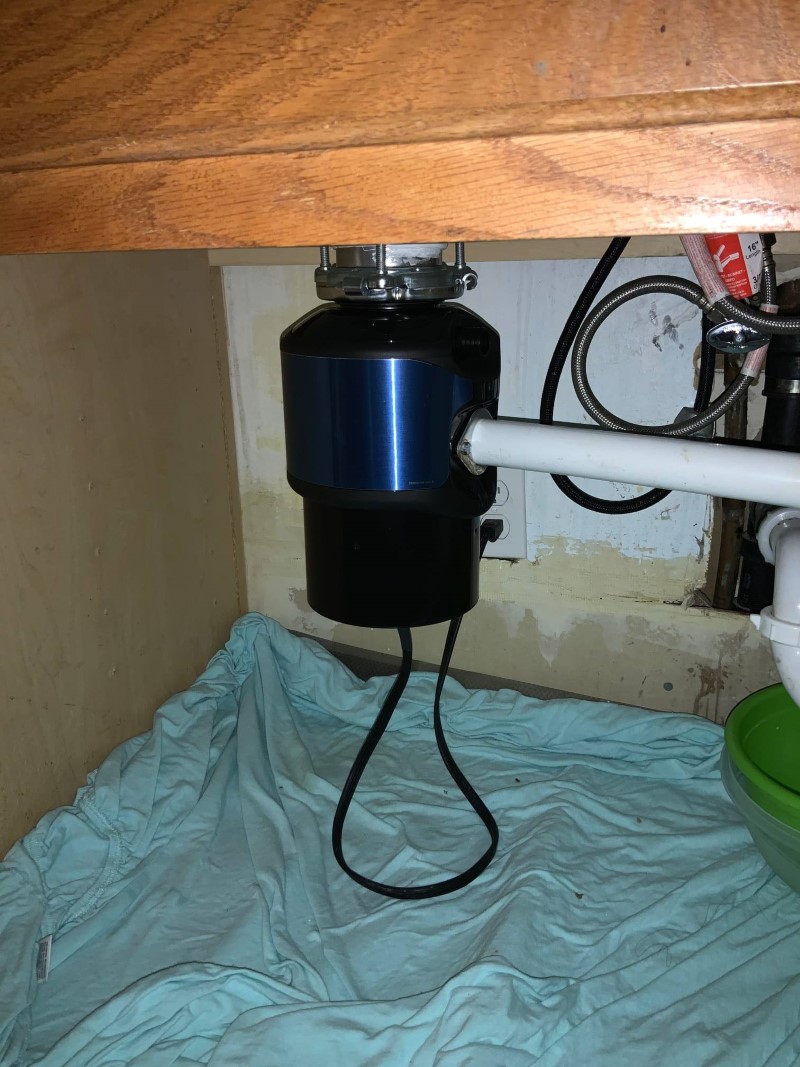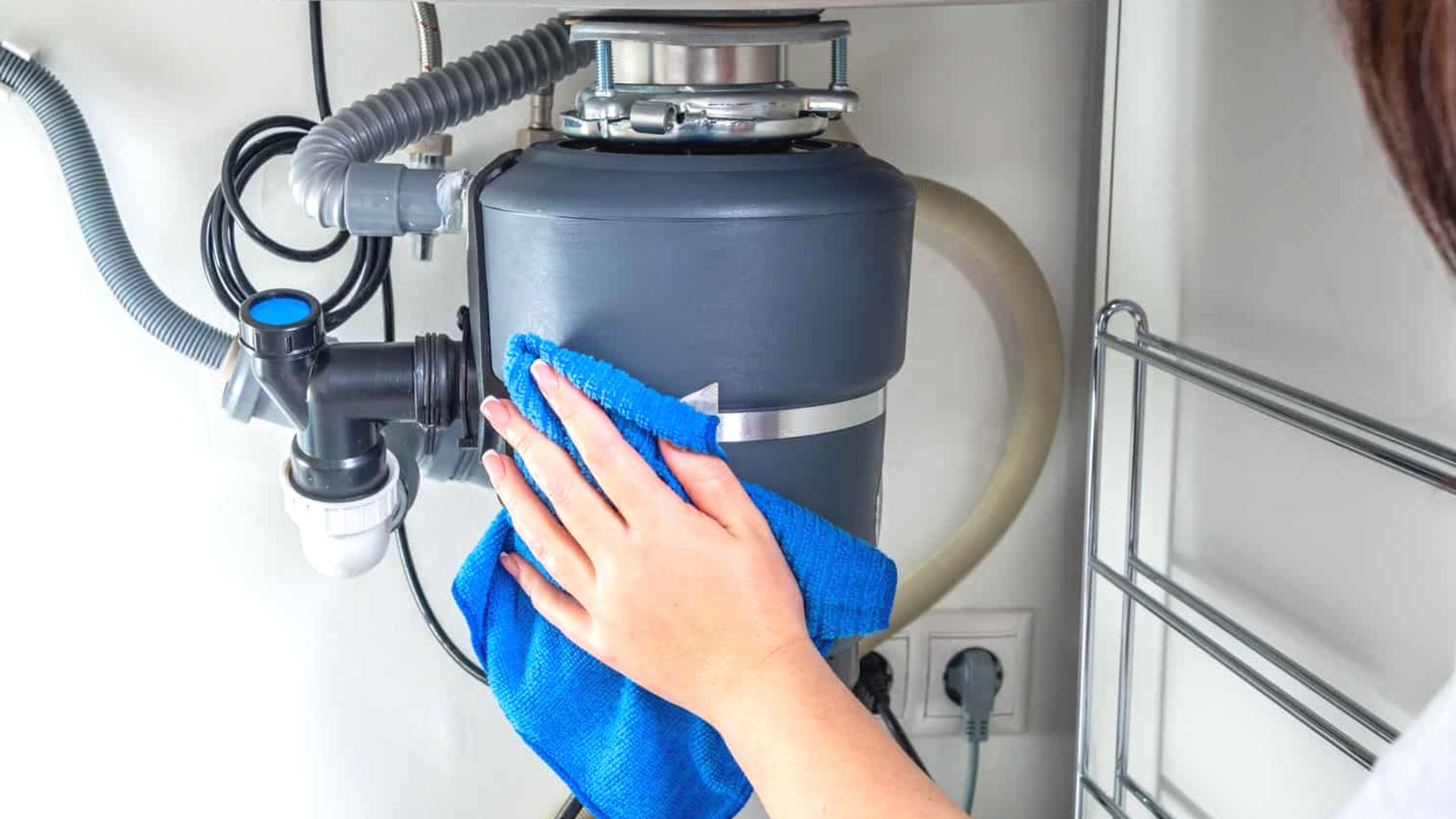Swift Fixes for a Dripping Garbage Disposal
Swift Fixes for a Dripping Garbage Disposal
Blog Article
Nearly everybody will have his or her own rationale involving Why Is My Garbage Disposal Leaking From the Bottom?.

Garbage disposals are necessary kitchen area appliances that assist in taking care of food waste successfully. Nonetheless, a leaking garbage disposal can be a frustrating and untidy issue to manage. Luckily, many leakages can be dealt with quickly with a few easy actions. In this write-up, we will talk about how to repair a leaking garbage disposal successfully.
Introduction
Garbage disposals are mounted under kitchen sinks and are made to shred food waste right into smaller sized items, enabling it to pass through the plumbing system quickly. While these tools are usually dependable, leakages can happen with time because of deterioration, loose links, or damages to the system.
Common Root Causes Of Leaks in Trash Disposals
Worn Seals and Gaskets
Seals and gaskets play a critical role in stopping water from dripping out of the waste disposal unit. In time, these elements can wear away, leading to leaks around the disposal unit.
Loose Connections
The links between the garbage disposal and the plumbing system can become loosened in time, causing water to leak out during operation.
Fractures or Openings in the Disposal System
Physical damage to the waste disposal unit, such as splits or openings in the real estate, can likewise cause leakages.
Determining the Source of the Leak
Prior to trying to deal with a leaking garbage disposal, it is vital to identify the resource of the leak. This can commonly be done with visual inspection or by carrying out easy tests.
Visual Inspection
Inspect the waste disposal unit device meticulously for any type of signs of water leakage. Pay attention to areas around seals, gaskets, and connection points.
Checking for Leakages
One means to check for leakages is by running water via the disposal system and checking for any type of noticeable indications of leakage.
Tools and Materials Needed for Repairing a Leaking Garbage Disposal
Before beginning the repair work process, gather the required tools and materials, consisting of a screwdriver, adjustable wrench, plumbing technician's putty, substitute seals or gaskets, and epoxy or patching material for repairing fractures or openings.
Step-by-Step Guide to Repairing a Dripping Garbage Disposal
Switch off the Power
Before trying any type of repair services, guarantee that the power to the waste disposal unit system is switched off to stop the risk of electric shock.
Situate the Leakage
Recognize the precise area of the leakage and identify the reason.
Tighten up Links
Use a wrench to tighten up any type of loose connections between the disposal system and the pipes system.
Change Seals or Gaskets
If the leak is due to used seals or gaskets, eliminate the old elements and replace them with new ones.
Patching Splits or Openings
For cracks or openings in the disposal device, usage epoxy or an ideal patching material to seal the damaged area.
Testing the Waste Disposal Unit After Fixing
Once the fixing is total, examine the garbage disposal by running water with it to guarantee that the leak has been resolved.
Preventive Maintenance Tips to Prevent Future Leaks
To prevent future leakages, it is important to carry out routine upkeep on your waste disposal unit. This consists of keeping it tidy, staying clear of placing non-food items or difficult objects down the disposal, and occasionally looking for leaks or other issues.
Conclusion
Finally, repairing a leaking waste disposal unit is a fairly simple process that can be completed with fundamental devices and materials. By complying with the actions laid out in this article and exercising precautionary upkeep, you can maintain your garbage disposal in good working condition and stay clear of costly repairs in the future.
HOW TO REPAIR A LEAKING GARBAGE DISPOSAL
The first thing to do if your garbage disposal starts to leak or exhibits other symptoms of wear and tear is to inspect the appliance quickly. Before making any repairs, check for any obvious cracks or damaged parts and turn the disposal off at the power source. Once you have located the issue, several tools might assist you in solving it. Many resources are available to assist you in putting your disposal back in working order, whether by purchasing new parts or professional assistance from a repair technician. So immediately act if you need help with leaky garbage disposal. You can rapidly resolve the problem and enjoy smoothly functioning appliances with thorough troubleshooting and help from web resources.
Food waste is disposed of using a garbage disposal system, which grinds and flushes it down the toilet. A garbage disposal is a motorized device with one or more rotating blades that grinds up food waste into little bits. They are commonly found under the kitchen sink. A dishwasher inlet or connector is often built into garbage disposals, allowing extra water to drain into the sink’s dishwasher. Several things, such as clogs, worn-out components, or damage to the inside walls of the unit, can bring on garbage disposal leaks or other problems.
WHAT ARE SOME COMMON PROBLEMS WITH GARBAGE DISPOSALS?
Jamming: One of the most frequent issues with garbage disposals is jamming. It occurs when hard or fibrous materials, such as bones, potato peels, or fruit pits, get stuck in the disposal’s blades or impeller. It can prevent the unit from operating correctly or cause it to make unusual noises. Clogging: If too much food waste or non-food items are put into the disposal at once, it can lead to clogging. Clogged disposal may result in slow drainage or a complete backup of water in the sink. Grease and fats can also solidify inside the disposal and contribute to clogging. Leaks: Garbage disposals can develop leaks over time. The most common areas for leaks are the sink flange, the discharge pipe connections, or the dishwasher connection. Leaks can cause water damage and need to be addressed promptly. Foul odors: Food residue can build up in disposal over time and cause unpleasant odors. Bacteria and mold growth inside the unit can also contribute to foul smells. Dull blades: The grinding blades in the disposal can become dull over time, resulting in inefficient chopping and grinding of food waste. That may lead to more frequent jams and increased strain on the motor. HOW CAN YOU TELL IF YOUR GARBAGE DISPOSAL IS LEAKING?
Visible water: Check underneath the sink where the garbage disposal is installed. If you notice water pooling or dripping around the unit or any adjacent pipes, it’s a clear sign of a leak. Musty odor: A persistent or moldy smell from your kitchen sink area could indicate a hidden leak. The moisture from a leaking garbage disposal can create a damp environment that promotes mold and mildew growth. Water damage: Examine the area surrounding the garbage disposal for any signs of water damage. Look for water stains, discoloration, or warping on the cabinet floor or walls beneath the sink. Decreased performance: A leak in the garbage disposal can affect its functionality. If you notice that the disposal is not grinding food waste properly or is making unusual noises, it could be due to water damage or a leak compromising its mechanisms. Rust or corrosion: Inspect the garbage disposal for any signs of rust or corrosion. A leaking unit can cause metal components to deteriorate over time. Look for rust-colored stains or deterioration on the disposal unit or surrounding pipes. https://theappliancepeople.com/how-to-repair-a-leaking-garbage-disposal/

Do you like reading up on Garbage Disposal Leaking From Bottom? Try leaving a remark further down. We would be pleased to hear your reactions about this blog post. We hope to see you back again later on. Are you aware of anybody else who is looking into the topic? Feel free to share it. I enjoy reading our article about Garbage Disposal Leaking From Bottom.
Request An Estimate Report this page